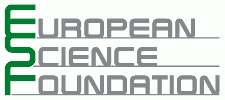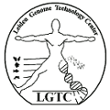ESF Next Generation Sequencing Meeting
Leiden, The Netherlands, August 29 - September 1, 2010
Note: Registration is closed.
Next generation sequencing (NGS) technologies enable high-throughput sequencing
for a multitude of applications, including de novo sequencing,
re-sequencing of (subsets of) genomic DNA, whole transcriptome sequencing,
tag-based transcript sequencing, and metagenomics sequencing. There has been
active research in these and other NGS applications resulting in a rapidly
developing field. While the second-generation technologies are being further
improved, third-generation sequencing is already becoming available and utilized
by pioneer researchers. However, because of the rapid developments, many
scientists, some just considering the use of NGS technology, have a need for
information and sharing of experiences. Furthermore, recent results show
applications emerging in fields that are not immediately obvious, including
evolution, environmental, forensics and archeology.
We aim at bringing together the experts in the field to present their work and share their experiences with European researchers.
This will accelerate the diffusion and exchange of information among European researchers, including those from regions where NGS is not yet being used.
Costs: Students: 100 euro, Academic: 200 euro, commercial: 400 euro
Young Researchers Program
The ESF Next Generation Sequencing Meeting has a special program for the next generation of
genomics researchers. This dedicated Young Researchers Program will bring together the
leaders in NGS and talented young researchers, and focuses on two aspects that are
important for a career in science:
1.Scientific quality; young scientists are invited to send in abstracts of their research,
from which the scientific committee selects two abstracts per session for oral presentation.
Selected young scientists are also invited to participate in a lunch session with the keynote
speakers of their session, in which they get the opportunity to discuss their research.
2.Presentation; among the ten presenters, one will receive the Best Presentation Award,
based on the quality of the research, the presentation itself, and the response to questions.
The young scientists of whom the abstracts are not selected for oral presentation, get to
present their research in topic-specific poster sessions. Through a democratic process
involving all participants, the best poster will be awarded the Poster Award.
Registration procedure:
Any Ph.D. candidate or researcher in her/his first postdoctoral research project is eligible
to participate in this program. Please indicate that you are eligible to participate in the
Young Researchers Program by ticking the corresponding box, and submitting your abstract.
Please also indicate in which of the oral session topics your research would fit best.















